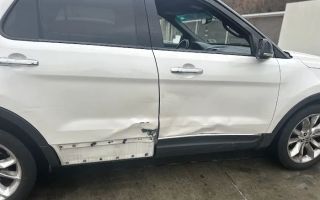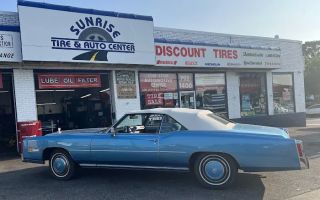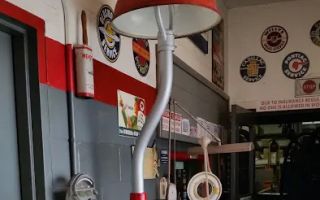Common Mistakes to Avoid After a Flat Tire
Experiencing a flat tire can be one of the most frustrating moments when you're on the road. Whether it’s during a road trip or while you’re just running errands, it often catches us off guard. I can vividly remember the first time I had to deal with a flat tire. It was an afternoon like any other, and suddenly, I found myself stranded on the side of the highway, with a hissing sound coming from my tire. After the initial shock wore off, I realized I had no idea how to properly handle the situation. Over time, I’ve learned several key lessons on how to avoid common mistakes, and I’m here to share them with you, so you don’t end up in the same predicament I did. Let’s dive into the common mistakes many drivers make after a flat tire and how to avoid them.

MR. TIRE INC.
2078 New York Ave, Huntington Station, NY 11746, USA
1. Not Checking the Spare Tire Before You Need It
This one might seem obvious, but it’s easy to overlook. We all know the spare tire is in the trunk, and we assume it’s good to go when the time comes. But here’s the thing—I once found myself in a stressful situation when I needed my spare, only to realize that it was flat! It was one of those moments when you wish you had checked it beforehand. Spare tires need regular checks, just like the rest of your tires. You might have a spare in perfect condition, but if it’s been sitting unused for months or even years, there’s a good chance it might not be in usable condition when you need it. Be sure to inspect your spare periodically, checking the air pressure and ensuring it's in good shape.

MR. TIRE INC.
2078 New York Ave, Huntington Station, NY 11746, USA
2. Over-Reliance on Temporary Spare Tires
Temporary spare tires—often referred to as "donuts"—are a lifesaver when you're stuck on the side of the road, but relying on them for too long can lead to problems. These spares are designed to get you to a repair shop, not to be used as a long-term solution. I made this mistake once, thinking I could just drive around with the temporary spare until I had time to get a proper replacement. It wasn’t long before I noticed the handling of my car felt off, and the temporary spare wore out much faster than a regular tire. Remember, these spares are smaller and less durable, so get your regular tire repaired or replaced as soon as possible. Driving on a temporary spare for too long can damage your car and lead to dangerous driving conditions.
3. Forgetting to Inspect the Damaged Tire
After replacing the flat tire with your spare, it’s easy to just drive off without thinking about the damaged tire. However, you need to inspect the flat tire to see if it can be repaired. I learned this lesson the hard way when I left my flat tire at the side of the road and had it hauled off to the shop, only to find out that the damage could have been fixed for a fraction of the price. Not every flat tire is beyond repair—sometimes a simple puncture can be patched up, saving you the cost of a new tire. So take a moment to assess the damage. If it's something minor, a repair could be all you need.
4. Not Having the Right Tools
Another mistake I’ve seen many drivers make is not having the proper tools for changing a tire. When I had my first flat, I was confident I could change the tire myself, but when I popped open my trunk, I realized I didn’t have a working jack or a lug wrench. My spare tire was ready to go, but without the proper tools, I was stuck. Don’t make the same mistake—always make sure you have a working jack, a lug wrench, and other essential tools like a tire iron and a flashlight, just in case you find yourself in a dark or remote area.
5. Forgetting to Tighten the Lug Nuts Properly
After installing a spare tire, it’s critical to tighten the lug nuts securely. One of the most dangerous mistakes I’ve made was not tightening the lug nuts enough, thinking that a quick turn would do the job. A few miles down the road, I heard a rattling sound and pulled over to find that the spare tire was loose! Luckily, I caught it in time before it caused any major damage, but if I hadn’t noticed the issue, the tire could have come off while driving. Always use a star pattern to tighten the lug nuts and make sure they’re tightened to the proper torque. You can use a torque wrench to ensure accuracy.
6. Not Replenishing Tools After Use
Once the tire is changed and you’re back on the road, it’s easy to forget about the tools you used. I’ve made the mistake of forgetting to replace my jack and wrench back into the trunk, only to be unprepared the next time I needed them. Ensure that after each tire change, you double-check your trunk to make sure you’ve replenished everything you need for future emergencies.
7. Driving Too Fast After Changing a Tire
After changing a tire, especially if you're using a temporary spare, resist the temptation to speed up right away. Driving too fast after changing a tire can put undue stress on the spare and cause it to fail. I remember the first time I drove on a temporary spare, I was eager to get to the tire shop, but I had to remind myself to drive slower. A temporary spare is not built for high speeds, so it’s best to keep your speed under 50 mph (80 km/h) until you get a proper tire replacement. Patience is key in ensuring your safety on the road.
In conclusion, dealing with a flat tire doesn’t have to be a stressful event. By avoiding these common mistakes, you’ll be able to handle flat tires with confidence and ease. Regularly checking your spare, using the right tools, and making sure your tires are properly maintained will save you time, money, and potentially dangerous situations. I hope these tips help you feel more prepared the next time you encounter a flat tire—because no one wants to be caught off guard on the road!




























